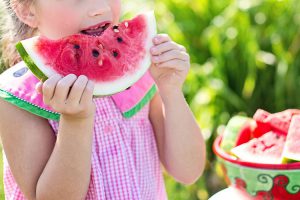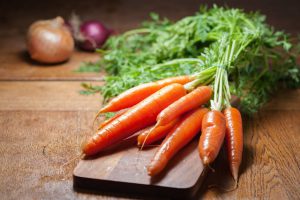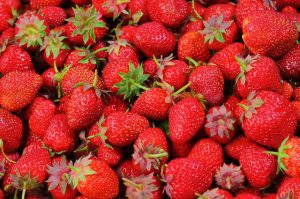Organic foods are foods produced by methods that comply with the standards of organic farming. Standards vary worldwide; however, organic farming in general, features practices that strive to foster cycling of resources, promote ecological balance, and conserve biodiversity. Organizations regulating organic products may choose to restrict the use of certain pesticides and fertilizers in farming. In general, organic foods are also usually not processed using irradiation, industrial solvents or synthetic food additives.
Currently, the European Union, the United States, Canada, Mexico, Japan, and many other countries require producers to obtain special certification in order to market food as organic, within their borders. In the context of these regulations, organic food is food produced in a way that complies with organic standards set by national governments and international organizations. Although the produce of kitchen gardens may be organic, selling food with the organic label is regulated by governmental food safety authorities, such as the US Department of Agriculture (USDA) or European Commission.
There is no sufficient evidence in medical literature to support claims that organic food is safer or healthier than conventionally grown food. While there may be some differences in the nutrient and anti-nutrient contents of organically and conventionally produced food, the variable nature of food production and handling makes it difficult to generalize results. Claims that organic food tastes better are generally not supported by evidence.
For the vast majority of its history, agriculture can be described as having been organic; only during the 20th century was a large supply of new products, generally deemed not organic, introduced into food production. The organic farming movement arose in the 1940s in response to the industrialization of agriculture.
I would like to see people more aware of where their food comes from. I would like to see small farmers empowered. I feed my daughter almost exclusively organic food.
Anthony Bourdain
In 1939, Lord Northbourne coined the term organic farming in his book Look to the Land (1940), out of his conception of “the farm as organism,” to describe a holistic, ecologically balanced approach to farming—in contrast to what he called chemical farming, which relied on “imported fertility” and “cannot be self-sufficient nor an organic whole.” Early soil scientists also described the differences in soil composition when animal manures were used as “organic”, because they contain carbon compounds where superphosphates and haber process nitrogen do not.
Their respective use affects humus content of soil. This is different from the scientific use of the term “organic” in chemistry, which refers to a class of molecules that contain carbon, especially those involved in the chemistry of life. This class of molecules includes everything likely to be considered edible, and include most pesticides and toxins too, therefore the term “organic” and, especially, the term “inorganic” (sometimes wrongly used as a contrast by the popular press) as they apply to organic chemistry is an equivocation fallacy when applied to farming, the production of food, and to foodstuffs themselves. Properly used in this agricultural science context, “organic” refers to the methods grown and processed, not necessarily the chemical composition of the food.





